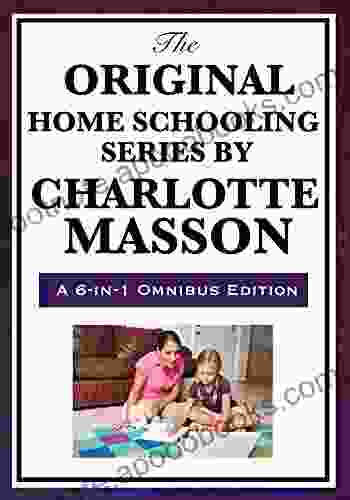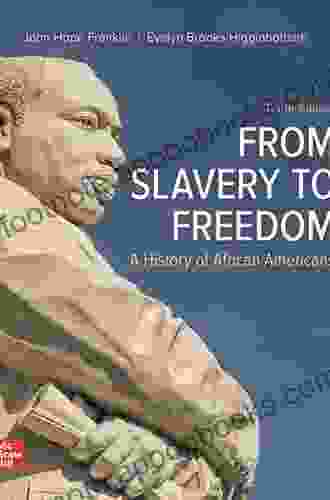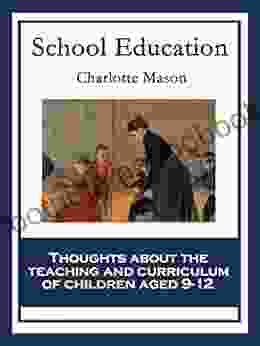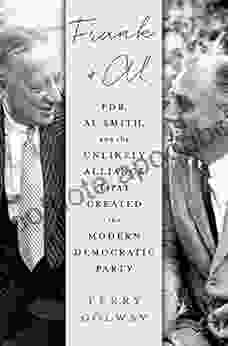FDR, Al Smith, and the Unlikely Alliance That Created the Modern Democratic Party

In the tumultuous years of the early 20th century, as the nation grappled with economic depression, social upheaval, and political polarization, two unlikely allies emerged from the political fray: Franklin Delano Roosevelt and Al Smith.
Roosevelt, a patrician aristocrat from Hyde Park, New York, and Smith, a self-made son of Irish immigrants from New York City's Lower East Side, were polar opposites in background and temperament. Yet, through a confluence of circumstances, they forged an extraordinary political partnership that would reshape American politics and create the modern Democratic Party.
4.7 out of 5
| Language | : | English |
| File size | : | 14160 KB |
| Text-to-Speech | : | Enabled |
| Screen Reader | : | Supported |
| Enhanced typesetting | : | Enabled |
| X-Ray | : | Enabled |
| Word Wise | : | Enabled |
| Print length | : | 323 pages |
The Rise of Al Smith
Al Smith's rise from poverty to political prominence was a true American dream story. Born in 1873, he dropped out of school at the age of 14 to help support his family. Working as a stevedore and a truck driver, he became involved in local politics and quickly rose through the ranks of Tammany Hall, the powerful Democratic machine that dominated New York City.
Smith's charisma, wit, and common touch endeared him to voters. He served as speaker of the New York State Assembly and then as governor from 1919 to 1928. As governor, Smith championed progressive policies, such as labor reforms, public housing, and education access. He also became a vocal critic of Prohibition, which alienated him from many religious and rural voters.
Franklin Delano Roosevelt's Early Career
Franklin Delano Roosevelt was born into a wealthy family in 1882. After graduating from Harvard University and Columbia Law School, he entered politics in 1910 by winning a seat in the New York State Senate. Roosevelt quickly established himself as a rising star in the Democratic Party, serving as Assistant Secretary of the Navy under President Woodrow Wilson.
In 1920, Roosevelt was elected Vice President on the Democratic ticket led by James M. Cox. However, the Cox-Roosevelt ticket was defeated in a landslide by the Republican candidate, Warren G. Harding. Despite the setback, Roosevelt remained a popular figure within the party and was considered a contender for the presidency in 1928.
The 1928 Presidential Election
The 1928 presidential election was a pivotal moment in American history. The nation was still reeling from the Great Depression, and voters were hungry for change. Al Smith was the clear frontrunner for the Democratic nomination, but his Catholicism and support for Prohibition made him a controversial figure. Many party leaders believed that Roosevelt was a safer choice, but he lacked the same popular appeal as Smith.
In a dramatic twist of events, Roosevelt secured the nomination after a marathon 103 ballots at the Democratic National Convention. He then chose Smith as his running mate, hoping to unite the party behind a single ticket. The Republican candidate was Herbert Hoover, the incumbent Secretary of Commerce who had a reputation as a competent and efficient businessman.
The 1928 campaign was one of the most bitter and divisive in American history. Hoover attacked Roosevelt as a reckless spender and a puppet of Tammany Hall. Roosevelt, in turn, painted Hoover as an unfeeling plutocrat who was out of touch with the needs of the common man.
Despite Smith's unpopularity in certain regions of the country, Roosevelt managed to win the election by a narrow margin. He swept the traditionally Republican Midwest and West, while Smith carried the solid South and most of the large urban centers. Roosevelt's victory marked the end of the Republican dominance that had prevailed since the Civil War and the beginning of a new era for the Democratic Party.
The Roosevelt-Smith Alliance
Once in office, Roosevelt and Smith worked together closely to implement their ambitious New Deal agenda. Smith, as governor of New York, played a key role in crafting and implementing many of the New Deal programs. He was a tireless advocate for the unemployed and the working class, and his populist rhetoric resonated with millions of Americans.
Roosevelt, for his part, recognized the importance of Smith's support and gave him a prominent role in his administration. Smith served as chairman of the New York State Temporary Emergency Relief Administration (TERA),where he oversaw the distribution of relief funds to the needy. He also played a key role in the creation of the Social Security system, which provided a vital safety net for millions of Americans.
The Roosevelt-Smith alliance was a powerful force in American politics. Together, they helped to restore confidence in the federal government and enact sweeping reforms that transformed the role of government in American society. Their legacy continues to shape the modern Democratic Party today.
FDR and Smith on Immigration
One of the most important issues facing the Roosevelt-Smith administration was immigration. In the early 20th century, millions of immigrants from Southern and Eastern Europe flooded into the United States, seeking refuge from poverty and political oppression in their home countries.
Smith, the son of Irish immigrants, was a strong advocate for immigration reform. He believed that immigrants were a vital source of strength for the United States and that they should be welcomed with open arms. Roosevelt, on the other hand, was more cautious about immigration. He worried that the influx of immigrants was straining the nation's resources and that it could lead to social unrest.
Despite their differences, Roosevelt and Smith were able to find common ground on the issue of immigration. They agreed to support legislation that would restrict immigration from certain countries but would also provide a path to citizenship for those who were already in the United States.
In 1924, Congress passed the Immigration Act of 1924, which established a system of national quotas for immigration. The act favored immigrants from Northern and Western Europe and restricted immigration from Southern and Eastern Europe. Roosevelt and Smith both supported the act, although they later expressed reservations about its harsh provisions.
The Legacy of FDR and Smith
Franklin Delano Roosevelt and Al Smith were two of the most important figures in American political history. Together, they created the modern Democratic Party and enacted sweeping reforms that transformed the role of government in American society.
Roosevelt's legacy as a great wartime leader and champion of the common man is well-known. Smith's legacy is less well-known, but he was a equally important figure in the shaping of American politics. His tireless advocacy for the poor and the working class helped to create a more just and equitable society.
The Roosevelt-Smith alliance was a remarkable example of how two political opposites can come together to achieve great things. Their legacy continues to inspire Democrats today and serves as a reminder that even in the most divided times, it is possible to find common ground and work together for the common good.
4.7 out of 5
| Language | : | English |
| File size | : | 14160 KB |
| Text-to-Speech | : | Enabled |
| Screen Reader | : | Supported |
| Enhanced typesetting | : | Enabled |
| X-Ray | : | Enabled |
| Word Wise | : | Enabled |
| Print length | : | 323 pages |
Do you want to contribute by writing guest posts on this blog?
Please contact us and send us a resume of previous articles that you have written.
 Book
Book Novel
Novel Page
Page Chapter
Chapter Text
Text Story
Story Genre
Genre Reader
Reader Library
Library Paperback
Paperback E-book
E-book Magazine
Magazine Newspaper
Newspaper Paragraph
Paragraph Sentence
Sentence Bookmark
Bookmark Shelf
Shelf Glossary
Glossary Bibliography
Bibliography Foreword
Foreword Preface
Preface Synopsis
Synopsis Annotation
Annotation Footnote
Footnote Manuscript
Manuscript Scroll
Scroll Codex
Codex Tome
Tome Bestseller
Bestseller Classics
Classics Library card
Library card Narrative
Narrative Biography
Biography Autobiography
Autobiography Memoir
Memoir Reference
Reference Encyclopedia
Encyclopedia Rebecca Gibian
Rebecca Gibian Charles Martindale
Charles Martindale Charles F Haanel
Charles F Haanel Dean Rinaldi
Dean Rinaldi Charles R Swindoll
Charles R Swindoll Charles Patmore
Charles Patmore Charlotte Brooks
Charlotte Brooks Carolyn Keith Hopper
Carolyn Keith Hopper Dmitry Orlov
Dmitry Orlov Charles J Schwahn
Charles J Schwahn Cathy Summerlin
Cathy Summerlin Charles Corliss
Charles Corliss Charlene Mires
Charlene Mires Catherine Morgan
Catherine Morgan Charles Fairchild
Charles Fairchild Charles Avery Amsden
Charles Avery Amsden Charles K Wolfe
Charles K Wolfe Cassandra L Thompson
Cassandra L Thompson Martin Geck
Martin Geck Rohini Gupta
Rohini Gupta
Light bulbAdvertise smarter! Our strategic ad space ensures maximum exposure. Reserve your spot today!

 Ivan TurgenevZen and the Art of Dealing with Difficult People: A Path to Serenity Amidst...
Ivan TurgenevZen and the Art of Dealing with Difficult People: A Path to Serenity Amidst... Adam HayesFollow ·5.8k
Adam HayesFollow ·5.8k Jon ReedFollow ·6.5k
Jon ReedFollow ·6.5k Tyrone PowellFollow ·7.5k
Tyrone PowellFollow ·7.5k Willie BlairFollow ·11.2k
Willie BlairFollow ·11.2k Levi PowellFollow ·15.1k
Levi PowellFollow ·15.1k Charlie ScottFollow ·17.1k
Charlie ScottFollow ·17.1k Anton FosterFollow ·5.2k
Anton FosterFollow ·5.2k Herman MelvilleFollow ·6.8k
Herman MelvilleFollow ·6.8k

 Angelo Ward
Angelo WardThe Original Home School: A Journey of Love, Learning,...
In the annals of...

 Heath Powell
Heath PowellAfrican American Education in Slavery and Freedom: The...
The history of African...

 Jamal Blair
Jamal BlairEmbrace the Wonder and Simplicity of Charlotte Mason...
Discover the...

 Cason Cox
Cason CoxUnveiling the Truth: A Mother's Courageous Journey to...
A Mother's Love Unbound: The Power of...

 Jamal Blair
Jamal BlairOver 100 Original Aussie Bush Ballads: A Journey Through...
Embark on a literary odyssey into the...
4.7 out of 5
| Language | : | English |
| File size | : | 14160 KB |
| Text-to-Speech | : | Enabled |
| Screen Reader | : | Supported |
| Enhanced typesetting | : | Enabled |
| X-Ray | : | Enabled |
| Word Wise | : | Enabled |
| Print length | : | 323 pages |












